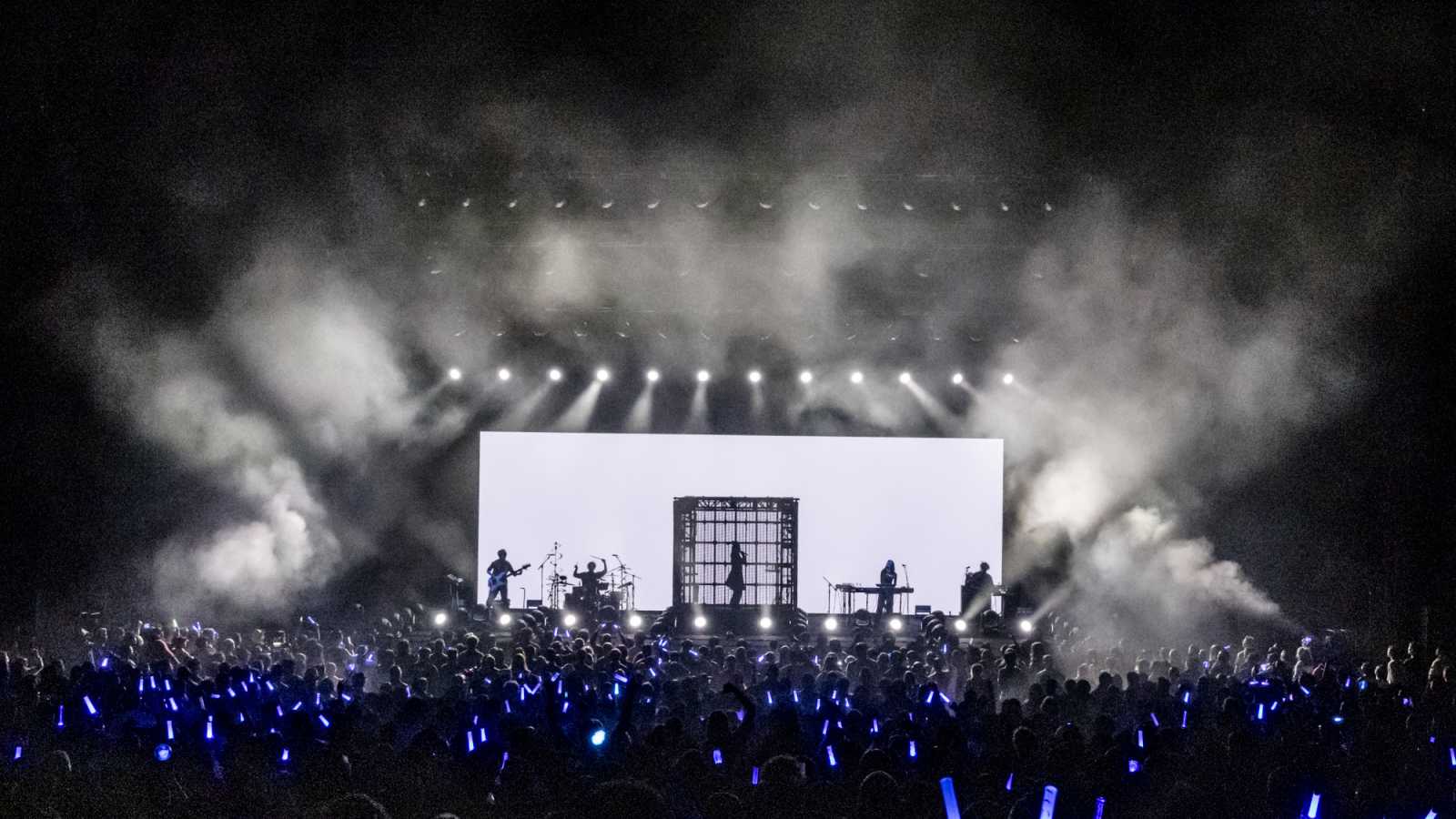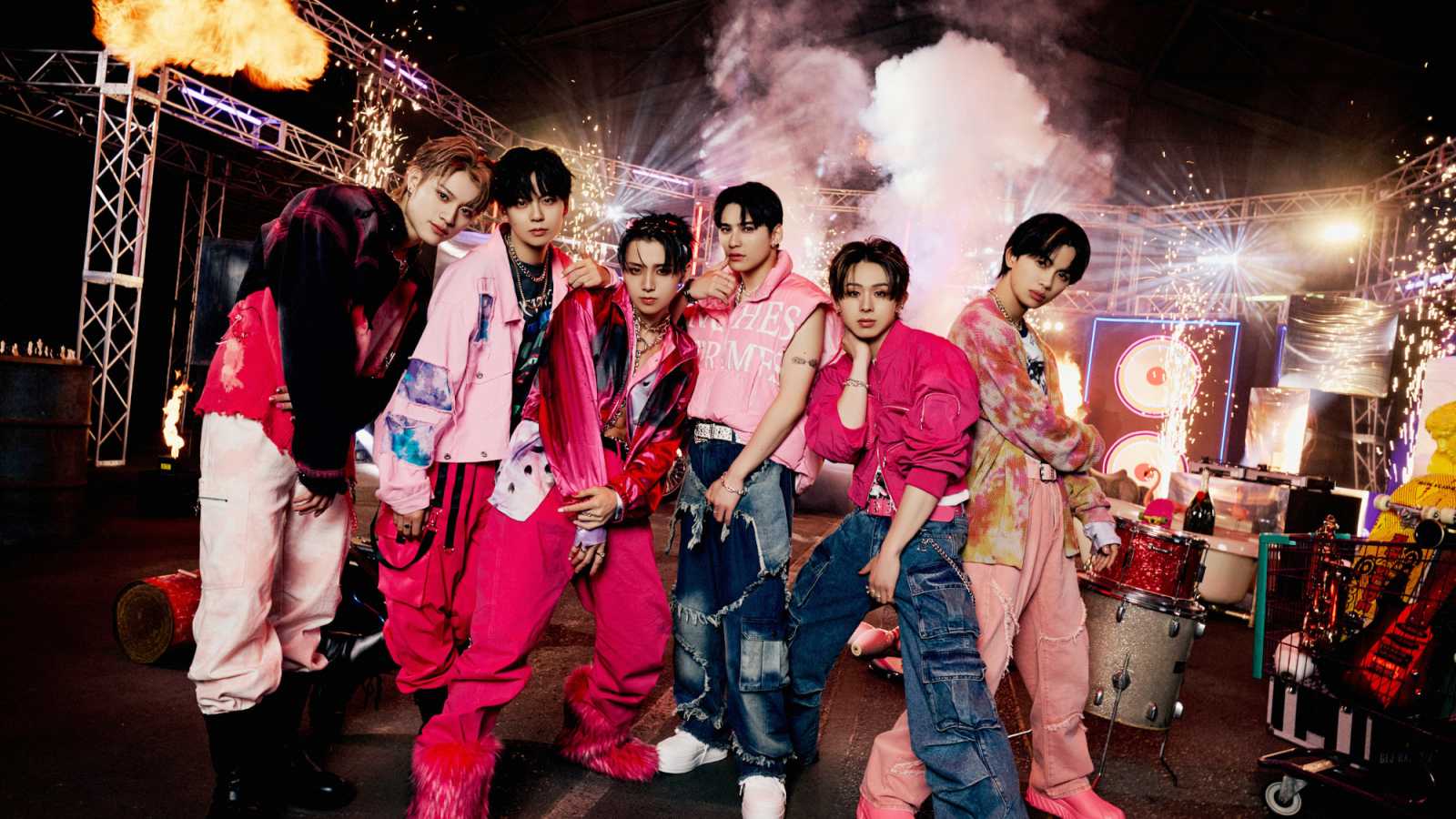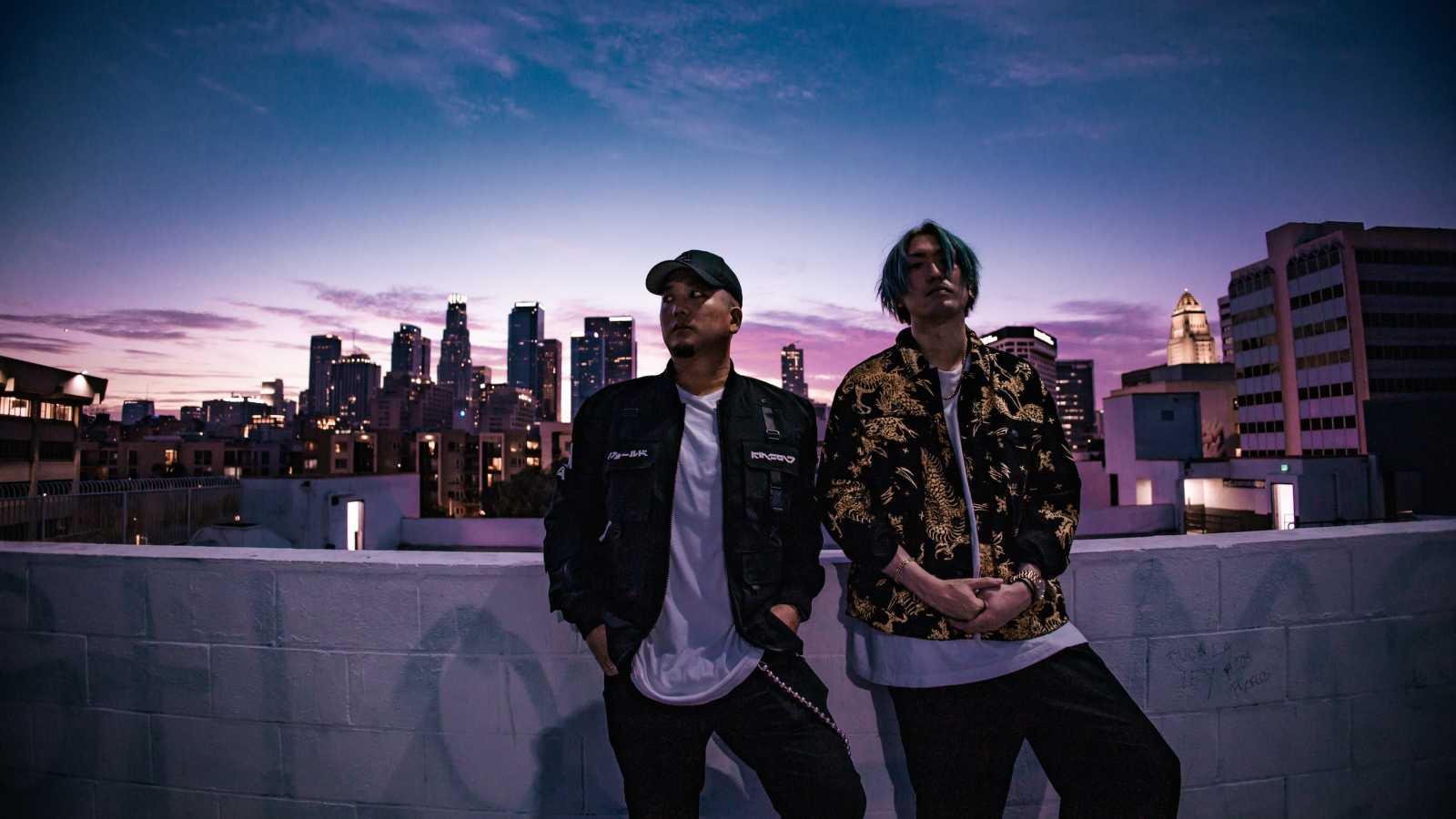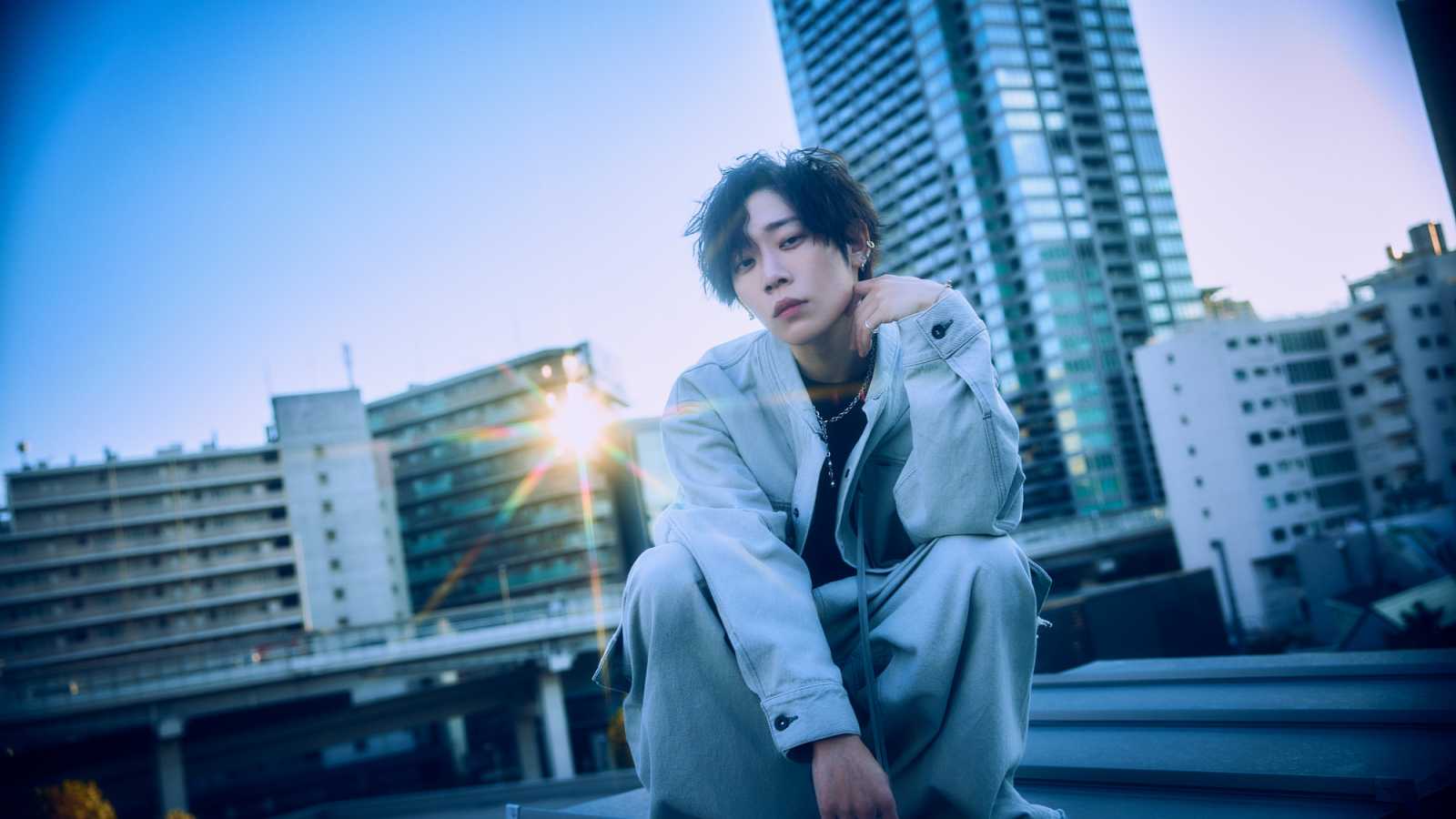BOOWY's story began in 1979 during a high school music contest. There, Himuro Kyosuke and his band, Death Penalty, beat out Hotei Tomoyasu's Blue Film for first place. Himuro moved his band then from Takasaki city down to Tokyo in hopes of making it big, but things didn't go according to plan and Death Penalty disbanded. The vocalist sought out another group but this didn't last long either and he left Spinach Power in 1980.
During this time, guitarist Hotei was expelled from school due to his long hair and refusal to cut it, infamously arguing that since Jesus had long hair, it was alright. Shortly afterwards, he was contacted by Himuro who proposed that they form a band together; and so, "Boui" was born. The vocalist and guitarist recruited a second guitarist, Moroboshi Atsushi, bassist Matsui Tsunematsu, drummer Kimura Mamoru, and a saxophonist, Fukazawa Matsuaki. They started performing in Shinjuku but, like many young bands, struggled during these times and sent numerous demos out to labels until finally Victor Entertainment took a chance and picked them up.
Kimura decided to leave in 1981 and was soon replaced by Takahashi Makoto. With this line-up, they group charged into 1982 and promptly changed their name to BOOWY in addition to releasing their first album, MORAL. During these early days, BOOWY was part of the punk scene and enjoyed a taste of success within that scene. It then came as a shock to their fans that the band decided to then go in a different direction, leaning towards lighter rock, nearly pop. This caused a small uproar among their fans and it was in this divided atmosphere that Fukazawa and Moroboshi quit the band.
The next year, now with the four members that would remain in BOOWY until the end, the band left their label and created their own with Tsuchiya Mamoru, a former member of Hotei's first band who took the role of their manager as well. At the time, it was practically unheard of for a band to do this and BOOWY dropped out of the public eye as Victor Entertainment ceased promoting them and the media ignored them. Despite this, the band soldiered on and re-built their reputation through live performances and the tenacity of the band and their manager, Tsuchiya. They started getting various offers once more from record companies, but, still smarting from their earlier experience, all were refused until they finally signed with a label known as Yui, which would later land them on the Toshiba EMI label.
Their third album, the self-titled BOOWY, was released in 1985 and the band played overseas for the first time in London. Once forgotten by the masses, BOOWY's new album, and the band themselves, went on to become a smash hit as their releases captured the number one spot in the charts again and again. Two albums were released the following year and the four men found themselves playing their tour final in the massive Nippon Budokan Hall, one of the most famous live venues in all of Japan.
It didn't seem like anything could slow BOOWY down, much less stop them. Except, it turned out, BOOWY themselves; the band announced in December of 1987 that they were splitting. They held their farewell gigs, two nights of shows, in the newly opened Tokyo Dome in April of 1988; so beloved was BOOWY that all 95,000 seats sold out in ten minutes.
The two founders of BOOWY, Himuro Kyosuke and Hotei Tomoyasu have both gone on to have wildly successful solo careers; Himuro may be best known to casual international listeners by his contribution to the sound track of the Final Fantasy VII Advent Children film while Hotei's Battle Without Honor or Humanity was featured in the American film 'Kill Bill'. Deciding their own path, even if it wasn't always the popular or easy one, BOOWY left a lasting impression on the music scene in Japan, one that is impossible to forget or ignore.



